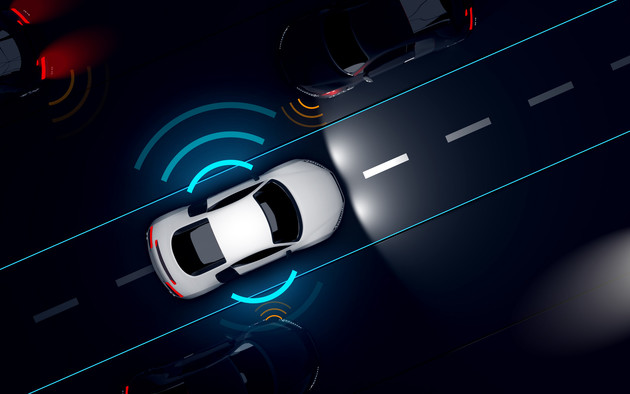
Photo/Shetuwang
Feb. 21 (NBD) -- Although Huawei repeatedly denied the reports about its foray into the auto manufacturing domain, the telecom giant's every move in the autonomous driving sector have always been attracting great public attention.
On Monday, a twitter user "@caolei1" claimed that Huawei has now acquired the overall structure and core technologies pertaining to autonomous pilot and hinted that the telecom giant has what it takes to manufacture cars, citing the tech company's rotating CEO in an internal meeting.
This seems going opposite to Huawei's consistent attitude towards car making.
In a previous interview with media this January, the tech firm's founder and CEO Ren Zhengfei made it clear that Huawei would never manufacture automobiles. "What we do is the modules for car networking, automotive electronic parts, and also edge computing. What we make are not cars but modules embedded in self-driving automobiles. We will not make cars or cross the boundary which is centered on electron current."
In response to the car-making speculation surrounding Huawei, an insider at the company said to news outlet Yicai that Huawei has its own business boundaries and will not engage in upper-layer application or vehicle manufacturing.
The "car manufacturing" rumors, in essence, are about Huawei's arrangement in vehicular networking, the insider underlined. In fact, like Apple and other tech behemoths across the globe, Huawei has started investing in car networking for quite a long time.
As early as in 2013, Huawei launched the on-board module ME909T and continued to invest in research and development related to vehicle networking with a purported investment of over 100 million yuan each year. Since then, Huawei has begun to carry out a series of strategic cooperation with global automobile companies and in 2018, the telecom company entered into separate agreements with carmakers including BAIC BJEV, FAW Group Corporation and Audi.
According to Yuan Tingqiu, vice president of Central Research Institute at Huawei, some high-end vehicle entails 100 million lines of code, which exceeds that of Facebook or Microsoft Office. In Yuan's opinion, cars in the future will be the integrated data, computing and control center and become an integral part for human beings.
Judging from the overall picture, software is taking a dominant role in the auto industry, and E-enabled and software-based transformation and informatization are outweighing mechanical parts as the core value in a vehicle. The unmanned vehicle, which poses challenges in data processing and computing, is an inevitable trend.
The auto industry is standing at the turning point when traditional cars are transforming to smart connected ones and single intelligent vehicle is integrating into smart city networks. It's evident that Huawei is not the only one that has figured this out. A fleet of Chinese and global enterprises have been ramping up investment in this area.
Starting in 2014, Apple began working on "Project Titan", setting up special labs and hiring software and automotive engineers to work on developing cars. In 2017, the iPhone maker has been granted a permit to test self-driving vehicles on public roads in California.
Google launched its self-driving car project in 2009 and now is testing its third-generation vehicles. China's Baidu, Tecent and Alibaba are also eyeing a share in the driverless market.
Some analysts held that only two types of companies can outrun their competition in the race of developing unmanned vehicle, which are automobile manufacturers with strong technological capability and companies like Huawei boasting core technologies in car networking and autonomous driving.
Email: gaohan@nbd.com.cn


 川公网安备 51019002001991号
川公网安备 51019002001991号





